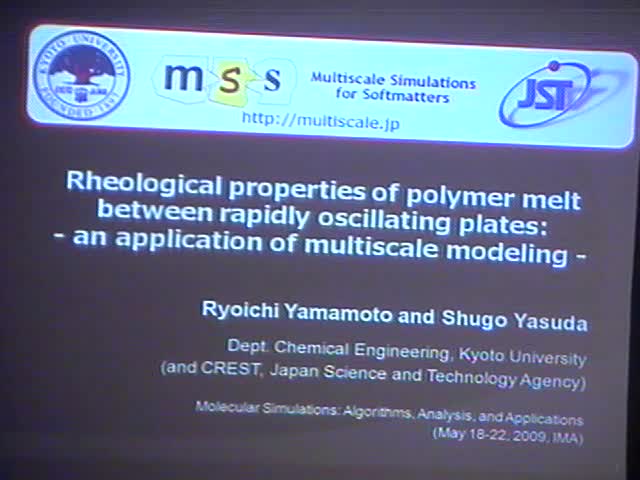Rheological properties of polymer melt between rapidly oscillating plates: an application of multiscale modeling
Presenter
May 21, 2009
Keywords:
- Polymers
MSC:
- 82D60
Abstract
The behavior of supercooled polymer melt composed of short
chains with ten beads between rapidly oscillating plates is
simulated by using a hybrid simulation of molecular dynamics
and computational fluid dynamics.
The flow profiles of polymer melt near an oscillating plate are
quite different from those of Newtonian fluid.
The viscous boundary layer of the melt is much thinner than
that of the Newtonian fluid due to the shear thinning of the
melt.
Three different rheological regimes, i.e., the viscous fluid,
viscoelastic liquid, and viscoelastic solid regimes, form over
the oscillating plate according to the local Deborah numbers.
The melt behaves as a viscous fluid when ftR < 1, and the
crossover between the liquid-like and solid-like regime takes
place around ftR = 1 (where f is the angular frequency of the
plate and tR and ta are the Rouse and the alpha relaxation
time, respectively).
